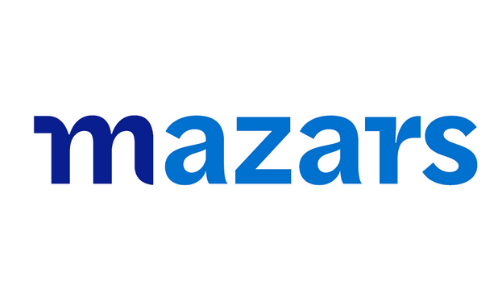
- Most companies face compliance as a factor in building trust and reputation and not as a mere obligation.
- Managers invest a considerable amount of time in compliancethree-quarters of top executives/board members devote at least a quarter of their time to the task of compliance.
- More than half of the respondents (51%) expect the requirements of compliance become more difficult to meet and plan to invest in skills and technology (machine learning/IA) to accompany them.
- 4/5 of the companies (82%) are sure that they are complying with the current requirements for compliance - and will continue to do so in the future.
- A broadly consistent position expressed in different regions and countries, with some exceptions identified.
November 15, 2021, LisbonMazars, a leading international audit, tax and consulting firm, has released the study "Unlocking trust: why global compliance is on the business agenda". The study, based on a questionnaire of 892 senior professionals from compliance in the areas of accounting and taxation in multinational organizations in 25 countries, highlights the current and future opportunities and risks associated with the compliance.
Opportunity to create value
Those responsible for compliance tend to see it as a factor that creates opportunities and not just as an obligation: 58% agree with this view. The opportunities that compliance These are significant: increasing trust, reinforcing security and building reputation. The reward for complying with compliance is valuable: 65% feel that compliance positive increases investor confidence, 64% say it increases customer/consumer confidence; 61% say it helps build a favorable reputation.
 This evolution in the perception of complications is explained by Alice Vitória Brito, Chief Compliance Officer at Mazars in Portugal, since "the main objective of compliance is to ensure that entities comply with legislative and regulatory requirements in the corporate environment in which they operate, as well as with the organizations' internal rules and codes of conduct. The primary and restricted view of compliance, as a tool for preventing non-compliance and consequent damage (reputational and/or financial) and risk mitigation, has evolved. In the current business context, robust compliance is increasingly seen as an opportunity and a tool for strengthening investor and client confidence, contributing to building the entity's reputation and, on a more global level, to the development of a fair market."
This evolution in the perception of complications is explained by Alice Vitória Brito, Chief Compliance Officer at Mazars in Portugal, since "the main objective of compliance is to ensure that entities comply with legislative and regulatory requirements in the corporate environment in which they operate, as well as with the organizations' internal rules and codes of conduct. The primary and restricted view of compliance, as a tool for preventing non-compliance and consequent damage (reputational and/or financial) and risk mitigation, has evolved. In the current business context, robust compliance is increasingly seen as an opportunity and a tool for strengthening investor and client confidence, contributing to building the entity's reputation and, on a more global level, to the development of a fair market."
"This is evident in the growing level of involvement of top managers and the investment made by organizations. The main challenge is to manage and keep up with a rapidly changing and increasingly demanding business and regulatory environment, which requires constant adaptation, reappraisal of risks and their approach"he concludes.
Companies allocate seniority to the effort of compliance
In 3/4 (75%) of the companies, top executives and board members address the compliance quarterly or even more regularly (39% monthly). This involvement is usually part of a pre-programmed review of risks (50%), but is also often part of the search for new ones. insights or opportunities (44%).
More than half of the companies expect the requirements for compliance become more difficult to fulfill in the future
Globally, companies confirm that the attention and resources devoted to compliance lead to positive results: 82% are confident that they are successfully meeting the current requirements and will continue to do so in the future. However, more than half (51%) expect the compliance will become more demanding over the next five years. It is becoming more complex, legislation is changing rapidly and the Covid-19 pandemic will continue to cause disruption. 38% of respondents point to the increasing complexity, the same percentage identify the impacts of the pandemic and 36% highlight new regulation as the most significant challenges to compliance over the next five years. Brexit also represents some disruption to compliance but it is not at the top of the list of challenges (23% globally mention it as a relevant challenge).
Leaders know that failure carries significant risks
Those responsible for compliance know the significant risks of failure: 77% say that their company has faced challenges related to compliance in the areas of accounting and taxation over the last five years. The consequences are generally reputational damage, internal disciplinary action and fines.
Managers must invest in technology, but they also need to leverage knowledge and skills
The main investments planned for compliance are in technology (particularly machine learning/artificial intelligence) and skills: 45% claim that new compliance accounting and tax will be one of the drivers to improve performance in their jobs over the next five years. However, the lack of knowledge and skills in their team is detrimental: two out of five respondents (42%) consider this to be a major obstacle to achieving the goals of compliance.
Broad regional consistency with a few exceptions
The study shows that regions and countries have similar responses, but some exceptions can be identified: among all the regions analyzed, 50% of the leaders in Latin America see this issue more strongly as an opportunity (65% vs 58%) and review their problems of compliance monthly or more often, 11 points above the study average. Respondents in the US point to the biggest challenge to compliance increased scrutiny from regulators - which does not figure among the top three challenges for the rest of the interviewees. In addition, those responsible in the Africa - Middle East, Latin America and USA regions were particularly challenged by the need to increase the resources associated with the compliance in the last year, compared to the study average (78%, 71% and 78%, respectively, compared to an average of 60%).
Erick Gillier, Partner, Global Head of Outsourcing at Mazars, says: "O compliance Globalization has been the cornerstone of good business practices, but it can still be seen as just an obligation to fulfill rather than an opportunity to be seized. That's why we set out to find out how managers approach the compliance global, including the attention they pay to it, the return they expect, the risks they anticipate and where they focus their investment. Our survey and study show that when this theme is implemented correctly it creates trust among investors, clients and consumers and shapes a positive reputation to the outside world."
"The survey and the study demonstrate the clear sense of responsibility that managers feel towards the compliance. With the level of scrutiny on the business environment at an all-time high, the realization that most managers are planning to increase the financial and human resources dedicated to the compliance should be reassuring for anyone who wants to see business developed correctly," adds Erick.
About Mazars
Mazars is a partnership an integrated international firm specializing in auditing, accounting, consulting, tax and legal services*. Operating in more than 90 countries and territories around the world, we draw on the expertise of more than 42,000 professionals - 26,000+ at partnership and 16,000+ via the Mazars North America Alliance - to support clients of all sizes at every stage of their development.
*when permitted by local legislation
https://www.mazars.pt/ | https://pt.linkedin.com/company/mazars-portugal |
https://pt-pt.facebook.com/MazarsPortugal
Methodology
Mazars, in partnership with GQR Research, surveyed 892 senior professionals from compliance in the areas of accounting and taxation, in multinational organizations, between April 30 and June 2, 2021. The fieldwork was carried out online and in a "double-blind" format: respondents were unaware that Mazars was the promoter of the survey. The respondents came from multinational companies in the private sector. They held at least senior management positions, worked in global/regional headquarters and had responsibility for multiple countries. They were involved in accounting and tax in their respective organizations.
Respondents came from all regions of the globe, with an emphasis on Western Europe and Asia-Pacific: Africa and the Middle East (100 respondents), North America (51), Latin America (101), Asia-Pacific (251), Central and Eastern Europe (50), Western Europe (339).
Size of the respondents' organization:
- Less than 1,000 employees globally: 268 respondents
- 000-10,000 employees globally: 380 respondents
- 000 employees globally: 244 respondents

